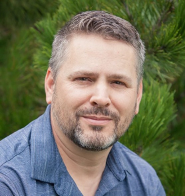Queen’s Partnerships and Innovation’s Wings Accelerator program is aimed at startups in the early, pre-revenue, stages of development. Through a mix of full-day seminars featuring business professionals and one-on-one coaching with accelerator facilitators Elza Seregelyi and Andrew Jackson, Wings gives startup founders the tools and guidance they need to evaluate the feasibility of their business idea, determine what it is they really have to offer customers, and begin developing a working business model. Participants build relationships with other startups, and learn how to create pitch their ideas to potential investors.
Wings is offered through the Scale-Up Platform, an initiative led by Invest Ottawa in Eastern Ontario and in which QPI is a regional partner. The Scale-Up Platform is supported by the Federal Economic Development Agency for Southern Ontario (FedDev Ontario).
“The pitch presentation. That’s kind of what I wanted to get out of it.”
If you think that herding cats is hard, try balloons. But that is exactly what Jeremy Henderson is working on.

Stratospheric balloons represent a novel, low-cost alternative to satellites. Drifting more than 50,000 feet above the Earth’s surface, far beyond the highest-flying passenger jet, they can be used for communications or for recording weather and other phenomena. At a cost that is about a hundredth of launching a satellite. They’re greener too; helium lifts them, they use no fossil fuels and can remain airborne continuously for 9 months.
Moving them to where you want them, however, is a challenge. To do that, you need to change their altitude to take advantage of different winds. Users quickly learn that they can’t rely on forecasted wind patterns. Because of climate change, Henderson says, “Everything is changing.” He figured that using AI or machine learning might help, letting the balloons “teach” each other what the wind conditions were. And he says, “The larger the formation of balloons, the more accurate” the information they have to share. “There has to be,” he thought, “a university that can solve this problem for me.” Henderson connected with Professor Martin Guay at Queen’s who was working on similar ideas using techniques for optimizing learning and control. It has been, he says, a “perfect fit.”
A former helicopter pilot in the Royal Canadian Air Force with 21 years of service, Henderson knew a great deal about aviation and disaster management (that had been his specialty for several years in the RCAF) but business strategy not so much. He connected with Queen’s Partnerships and Innovation.
“I talked to the commercialization person, and he said I’d need to come up with a business model canvas.” He enrolled in the Wings program to learn about that, and he says, about how to pitch to investors. “I had done hundreds of briefings in the military,” he says, “but that’s for a different audience. You’re not asking for anything.”
Participating in the Wings program paid almost immediate benefits. As part of the discovery process, where participants canvas potential customers to determine what their needs are, “They asked us to contact 10-20 potential customers. After the first one, I was, great, I’ve already got people who are committing equipment for my use that costs millions of dollars.” After two more, he got permission to stop – he was getting involved in opportunities before he was ready.
For the one-on-one mentoring Henderson worked closely with Elza Seregelyi. “I was thoroughly impressed with her professionalism” he says. During the time when he was canvasing potential customers, “I was emailing Elza, saying I have a Zoom call with these people, what should I expect? It was an evening, but she was there to help me."
Among the companies he approached during the discovery portion of the program was “a huge space company that is interested in potentially working with us on three separate projects and I also received a suggestion during the final pitch session to apply to the Creative Destruction Lab in Toronto.” The work he is undertaking with Queen’s is receiving generous funding from Mitacs, and they are in discussions with the University of Toronto’s Fields Institute of Mathematics for additional financial support.
“The program was a huge benefit for Stratotegic,” he says.
 About Vice-Principal Research
About Vice-Principal Research